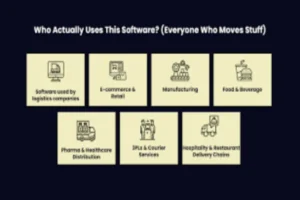From Classroom to Tech: How Teachers Can Land High-Paying Jobs in EdTech

Teachers have a special combination of skills that no one else can equal: open communication, flexibility, patience, planning, and a solid understanding of pedagogy. These skills, honed over decades in classroom settings, have increased their value as the changing education sector is being revolutionized by technology. EdTech, or education technology, is booming and offers teachers immense prospects for transitioning from classroom teaching to lucrative, rewarding tech careers. But how do teachers manage to do so?
Understanding the Value of Your Skills
Teachers have no idea how much their skill set is worth outside of the standard classroom. Skills that have been acquired over decades of teaching are highly transferable, however. Classroom management is project management skill directly transferable, and lesson planning and curriculum development are instructional design career directly transferable skills. Teachers’ skills at student engagement are highly sought after by corporations attempting to develop successful, user-friendly online learning platforms.
Recognizing and defining these transferable skills is the first key step in a successful career change to the tech sector. EdTech firms usually seek people who have first-hand knowledge of how students learn and engage with learning material. Teachers already possess such experience, so they are at a tremendous advantage during recruitment.
Identifying Your Ideal EdTech Role
EdTech careers are varied, and the trick is to discover your niche by looking at your areas of interest and expertise. There are teachers who like being instructional designers, creating interactive online learning courses and materials. Others like working in UX, helping to design learner-friendly learning software that increases learner performance and engagement.
Curriculum Specialist or Learning Consultant positions allow teachers to leverage their deep experience in education theory to guide product development and alignment review vs. instruction objectives. EdTech sales and customer success, on the other hand, rely on strong communication skills, level-headedness under pressure, and the capacity to explain the esoteric simply—all skills readily available in most veteran teachers.
Upskilling to Boost Your Marketability
While teachers are already well-placed to be employed in EdTech, additional training can do wonders for marketability and compensation. Familiarity with tools such as learning management systems (LMS), video editing software, and even coding or web basics is extremely desirable. Online courses, boot camps, and certification courses can fill in knowledge gaps and demonstrate a commitment to continuing education—yet another attribute highly valued within the tech industry.
Moreover, consciousness of future technologies like artificial intelligence (AI), virtual reality (VR), and adaptive learning systems equips the teacher with future prospects as potential candidates who can meaningfully contribute to solutions in learning innovation.
Building a Powerful Network
The importance of networking cannot be overstated. Word of mouth or personal recommendation is the way in which most EdTech jobs are found. Technically savvy teachers looking to take the plunge need to be a consistent attendee of professional organizations, online communities, and education technology trade conferences. Places like LinkedIn offer good means to network with industry experts, recruiters, and other educators who have successfully made the transition.
When networking, you would rather be concise. Being able to clearly state what you hope to do and how your teaching experience particularly qualifies you for certain roles in EdTech can assist your network professionals in advocating for you. Developing these professional associations early and nurturing them in an authentic way increases the chances of landing your ideal job.
Making the Leap: Applying Strategically
Job searching in a new career can be daunting but preparation can help ease the way. Teachers can update their resumes to highlight transferable skills such as project management capacity, curriculum development, and proficiency in education technology platforms. A portfolio of teaching materials, lesson plans, or methods of engaging students can also make your application more compelling.
In EdTech interviews, you need to stress flexibility and flexibility. Be prepared to discuss how you have managed challenging classroom dynamics, integrated technology into classrooms, and adjusted instruction strategies to fit varying learning needs.
Learn From Those Who’ve Done It
Teachers curious about EdTech should seek out educators who’ve already made the transition. Learning from their experiences, challenges, and advice can offer invaluable insights and practical guidance. For example, exploring real-life stories can reveal the nuances of different EdTech roles and how various educators have successfully translated classroom expertise into thriving tech careers. You can learn more here about the opportunities available and how to make a successful transition.
Staying Committed to Continuous Learning
EdTech is dynamic and rapidly evolving, meaning continual learning is essential. Teachers accustomed to adapting curricula year-over-year are well-prepared for this fast-paced environment. Remaining curious, staying abreast of emerging trends, and regularly upskilling will ensure your continued growth and relevance in EdTech.
Active participation in professional workshops, webinars, and conferences in your area of profession also solidifies your knowledge and expertise in the technology field. Proactive learning, flexibility, and eagerness to be at the leading edge of new educational technology advancements are highly valued by employers in candidates.
Why the Transition Is Worth It
Transitioning from the classroom to EdTech is not always about more money—it’s also about broader reach. EdTech professionals have the potential to touch the learning experience of thousands, and in some instances tens of thousands, of students across the globe. The satisfaction of creating tools and platforms that actually do have a quantifiable effect on the lives of students is vast and rewarding.
Additionally, EdTech startups are usually very dynamic and collaborative environments where innovation and creativity are the priority. Young educators learn here how to approach different projects, collaborate with multidisciplinary teams, and seek new ideas and solutions constantly.
In total, teachers wanting to transition into EdTech on a long-term and profitable basis have every reason to be hopeful. The hybrid combination of profoundly transferable skill sets, targeted upskilling, guided networking, and intentional application will ensure a seamless and fulfilling career change from traditional classroom positions to engaging careers teaching technology. Accepting this avenue puts teachers not just on the path of financial growth but of professional satisfaction, broader impact, and a career path of continuous professional and personal growth opportunities.




